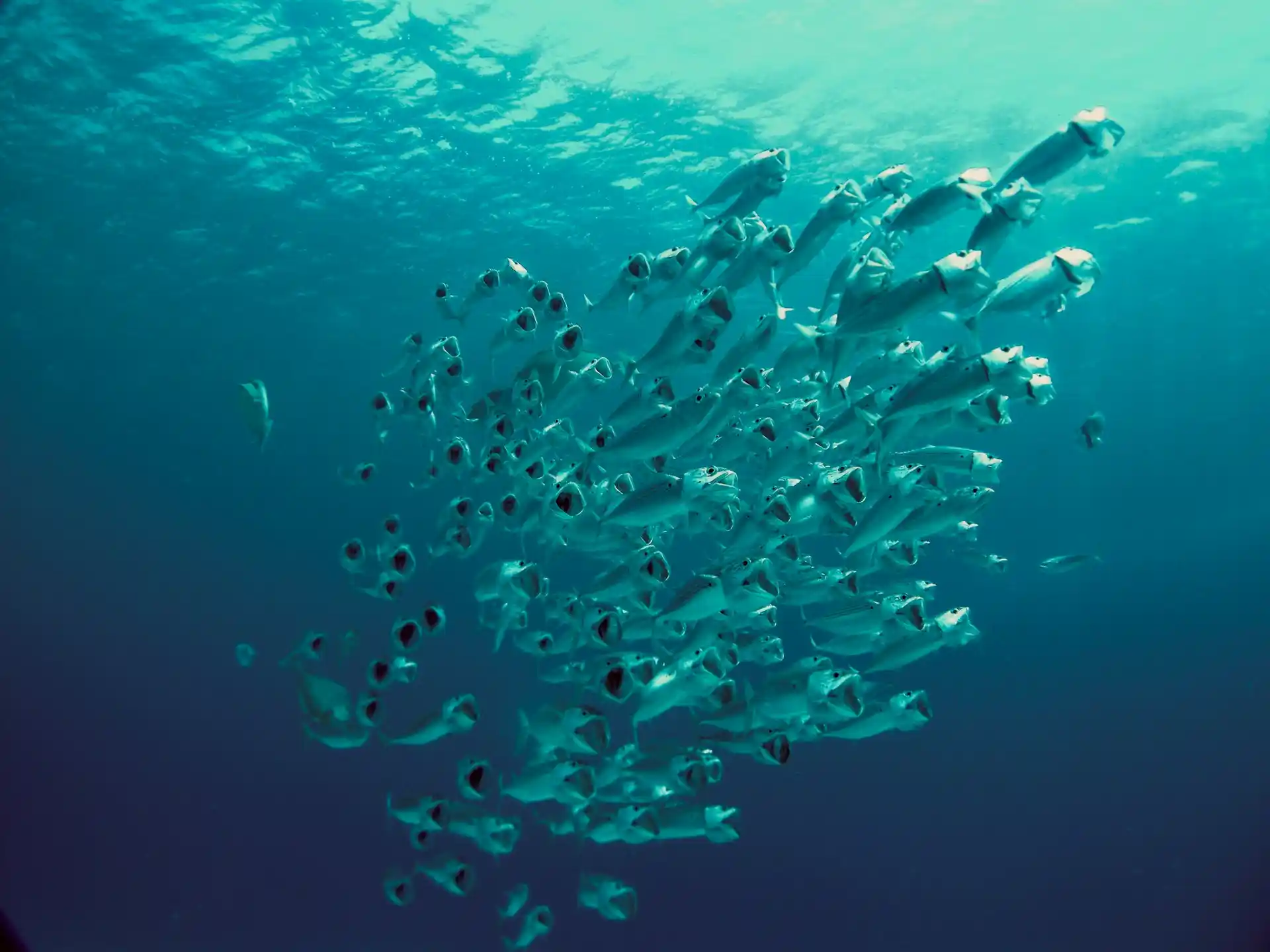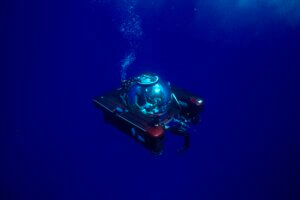Benefits of Healthy Oceans for Human Well-being
Oceans cover more than 70% of our planet, making them Earth’s life support system. From the air we breathe to the food we eat, oceans are deeply connected to human survival and well-being. However, despite their critical role, oceans are facing immense pressure from pollution, overfishing, habitat destruction, and climate change.
This blog explores the benefits of healthy oceans for human well-being and highlights why protecting our marine ecosystems is essential for the future of humanity.
1. Oxygen Production and Air Quality
A healthy ocean plays a vital role in producing oxygen and regulating air quality. In fact, phytoplankton tiny oceanic plants produce more than 50% of the world’s oxygen.
How It Helps Us:
-
Phytoplankton absorb carbon dioxide and release oxygen through photosynthesis.
-
Helps balance greenhouse gases.
-
Contributes to clean, breathable air for humans and animals.
2. Food Security and Nutrition
Oceans are a primary source of protein for over 3 billion people around the world. Fish and other seafood provide essential nutrients including omega-3 fatty acids, vitamin D, iodine, and more.
How It Helps Us:
-
Offers affordable, high-protein food globally.
-
Sustains coastal communities and economies.
-
Provides health benefits like improved brain and heart function.
3. Economic Livelihood and Employment
Healthy oceans contribute to a thriving blue economy. Millions of jobs around the globe depend on marine industries such as fishing, shipping, tourism, and renewable energy.
How It Helps Us:
-
Provides employment to over 60 million people in fishing alone.
-
Boosts coastal tourism and recreation.
-
Supports innovation in marine biotechnology and renewable energy.
4. Climate Regulation and Carbon Storage
Oceans act as Earth’s climate regulator by absorbing heat and storing carbon dioxide. This helps to stabilize global temperatures and reduce the impacts of climate change.
How It Helps Us:
-
Absorbs about 30% of CO₂ produced by human activities.
-
Reduces the intensity of heatwaves and natural disasters.
-
Regulates global weather patterns and rainfall.
5. Source of Medicine and Scientific Discovery
The ocean is an untapped treasure trove of medicinal resources. Many pharmaceutical compounds have been discovered in marine organisms and are used to treat diseases like cancer, infections, and inflammation.
How It Helps Us:
-
Source of anti-inflammatory, anti-cancer, and antiviral agents.
-
Contributes to the development of new antibiotics and therapies.
-
Supports biomedical research and biotechnology innovation.
6. Mental Health and Recreation
Being near the ocean has been proven to reduce stress, anxiety, and depression. The “blue mind effect” refers to the calming mental state triggered by spending time near water.
How It Helps Us:
-
Enhances emotional well-being and cognitive clarity.
-
Encourages physical activity through water sports.
-
Boosts mood and reduces cortisol (stress hormone) levels.
7. Clean Water and Natural Filtration
Oceans and connected ecosystems like mangroves, salt marshes, and coral reefs help purify water and protect coastlines.
How It Helps Us:
-
Filters out toxins and pollutants.
-
Reduces erosion and stabilizes coastlines.
-
Protects freshwater resources through natural barriers.
8. Biodiversity for a Balanced Ecosystem
A diverse and thriving ocean is more resilient and productive. Healthy biodiversity in the ocean supports food chains, maintains ecological balance, and promotes sustainability.
How It Helps Us:
-
Helps maintain population balance among marine species.
-
Increases resilience to environmental stress.
-
Supports innovation in food, pharmaceuticals, and materials.
9. Protection from Natural Disasters
Coastal ecosystems like mangroves, coral reefs, and wetlands act as natural buffers against storms, floods, and hurricanes.
How It Helps Us:
-
Reduces coastal damage by absorbing storm surges.
-
Decreases flooding and erosion.
-
Protects lives and infrastructure in vulnerable coastal areas.
10. Cultural and Spiritual Significance
For many communities, the ocean holds spiritual, cultural, and historical value. Indigenous populations often view the sea as sacred and integrate it into their traditions and identities.
How It Helps Us:
-
Provides inspiration for art, literature, and rituals.
-
Preserves cultural heritage and traditional knowledge.
-
Offers a sense of identity and belonging to coastal communities.
The Threats to Ocean Health
Despite its many benefits, the ocean is under threat from:
-
Plastic pollution.
-
Overfishing.
-
Coral bleaching.
-
Oil spills.
-
Chemical runoff.
-
Climate change.
What this means for humans:
-
Reduced food and job security.
-
Increased frequency of extreme weather events.
-
Rising sea levels threatening coastal cities.
-
Loss of biodiversity and medical opportunities.
-
Higher risks to physical and mental health.
How We Can Protect Ocean Health
Reduce Single-Use Plastics
Switch to reusable bags, bottles, and containers.
Eat Sustainable Seafood
Support eco-labeled seafood and local fisheries.
Conserve Energy
Lower your carbon footprint to fight ocean acidification.
Support Marine Protected Areas
Donate to or volunteer with organizations protecting marine habitats.
Educate and Advocate
Share knowledge, sign petitions, and support ocean-friendly policies.
The benefits of healthy oceans for human well-being are vast, touching nearly every aspect of our lives our food, climate, health, jobs, and peace of mind. A clean, thriving ocean is not a luxury. It is a necessity.
Every action we take from reducing plastic use to voting for ocean-friendly policies contributes to protecting this essential life system. Let’s choose to safeguard our oceans and, in doing so, secure our future on this blue planet.
FAQs
How do oceans help regulate the Earth’s climate?
Oceans absorb heat and carbon dioxide, acting as a global thermostat that moderates temperatures and influences weather patterns.
What role do oceans play in human health?
They provide nutritious food, medicinal compounds, mental health benefits, and protection from natural disasters.
Can healthy oceans reduce natural disaster risks?
Yes. Healthy coral reefs and mangroves absorb storm energy, reducing the impact of hurricanes, floods, and tsunamis.
How is ocean biodiversity connected to human well-being?
Rich marine biodiversity supports ecosystems that provide food, clean water, medicine, and environmental resilience.
Why should non-coastal people care about ocean health?
Even if you live far from the sea, the ocean affects your oxygen, weather, food, and climate. Everyone is connected to ocean health.




